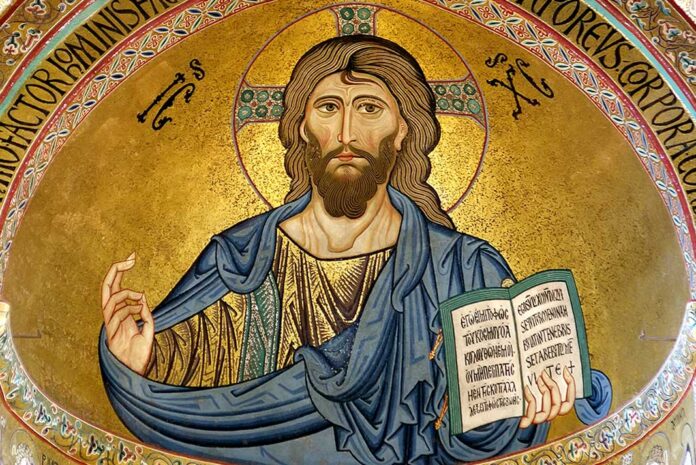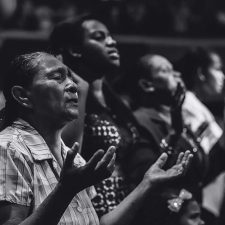As a new believer, I tried my best to live up to the standards of God and what I thought He expected of me. Like Paul confessed in Romans 7, I learned that it was not possible to always do the things I have to do and to stop doing the things I shouldn’t. We all have to go through this process to find the real life in God, where we are no longer putting any confidence in the flesh (Philippians 3:3).
Some think there is little difference between being religious and being spiritual, yet to God it is the difference between bondage and freedom, between law and grace (Galatians 5:1-4). The religious man is preoccupied with the “letter of the law” while the spiritual man walks by the leading of the Holy Spirit and the “spirit of the law”. The religious man tries to please God through human effort, a “good showing in the flesh”, while the spiritual man is resting in his faith in God, knowing that there is nothing he can do to make God love him more. The transition from the religious life to the spiritual life is illustrated in the principle of the temple.
We are the temple
At Mount Sinai, God introduced the concept of the temple to the people of Israel in the form of a tabernacle, a temporary structure where the people would meet God and fulfill the requirements of the Law of Moses throughout the wilderness. Later, Solomon’s Temple was constructed in Jerusalem as a permanent dwelling for God. This temple was rebuilt under Zerubbabel and Ezra and then later, after its destruction a second time, under King Herod.
In John 2, Jesus entered the temple and began turning over the tables of the money changers, exposing their unfair treatment of visitors by extorting excessive payments for animal sacrifices and the exchange of foreign currencies for the temple tax. Many religious people were profiting from the poor in the temple. Jesus’ anger demonstrates just how important it is to have a cleansed temple.
Later in the chapter, Jesus identified the temple as His body rather than that large structure in Jerusalem where religious people met. In John 4, He spoke to the Samaritan woman about worship no longer needing to take place in any particular location, but rather the Father requires the proper heart that motivates worship (John 4:20-24). These passages reveal a change in the meaning and role of the temple in the New Covenant. In 1 Corinthians 6:19, our bodies and not any physical structure are now the temple of God.
Cleansing the temple
The Old Covenant temple was a grandiose place of splendor and awe where the believer visited to fulfill his religious duties and to receive all necessary teaching. In this way, he could go there to be religious while maintaining his personal life separate from the religious. It reminds me of the view of the Emerald City that Dorothy and her friends had with all of its magnificence and associated expectations. It was a great place to visit, with the hope of receiving everything they needed to defeat the evil witch, but in the end, it was not home. The New Covenant temple goes with us wherever we go because it is us! God wants to make His home in us.
Many times, the avenue from religious to spiritual requires a refiner’s fire (Malachi 3:2-3). God promises to “purify the sons of Levi and refine them like gold and silver.” Consider this story:
A woman went to see a silversmith in action. The silversmith explained that he had to put the silver in the hottest part of the flame in order to burn away the impurities. The woman asked if it was necessary for the silversmith to be present at all times. “Absolutely,” he answered. “If the silver remains on the fire for a moment too long, it could be destroyed.” The woman asked, “How do you know when the silver is refined?” The silversmith answered, “That’s easy. When I can see my image in it.” This story illustrates that this work of God in each of us is so that the reflection of Christ would be visible to others.
Choosing that which is profitable
In 1 Corinthians 6:19-20, Paul tells the believer that he no longer belongs to himself, but he now belongs to God because he has been bought with a price. It means that the spiritual man no longer has a personal life and he can now begin to recognize God’s work within, as the temple is being built. The religious man compartmentalizes his life in order to fulfill his religious requirements while maintaining his own personal life. The spiritual man recognizes he is now a work of God, being transformed by God rather than conformed by human effort. In verse 12, Paul says, “All things are lawful for me, but not all things are profitable. All things are lawful for me, but I will not be mastered by anything”. In God’s economy, I can choose to do anything, but I choose the things that are beneficial for me, the things that will not control me and cause me to sacrifice my liberty, my right to choose good.
The transition from religious to spiritual is the process of embracing the reality that we are the temple and Jesus will cleanse us from all unrighteousness. The night before His crucifixion, Jesus took time to demonstrate this principle to His disciples when He washed their feet (John 13). Peter had a hard time with it until Jesus explained that “If I do not wash you, you have no part with Me.” Spirituality happens when we let Jesus do His work in us.













